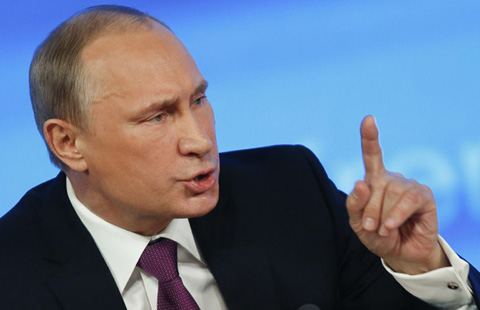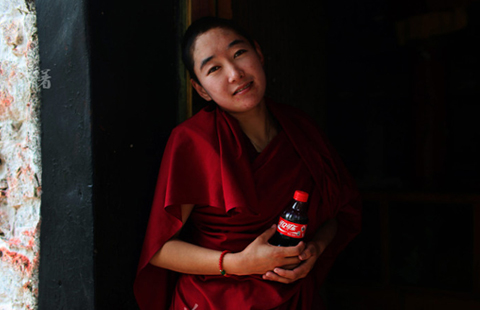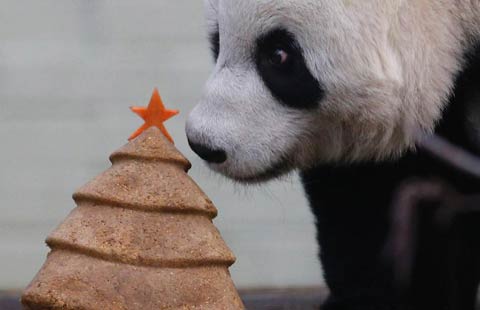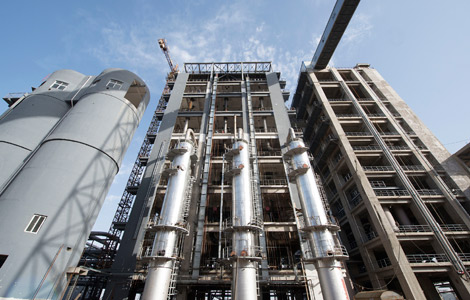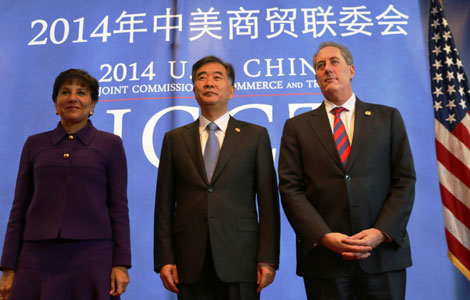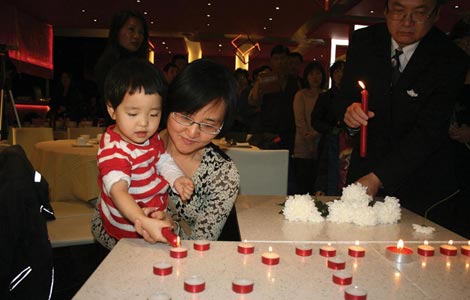Ding Yuan: Safeguarding history's truths
Updated: 2014-10-24 07:00
By CHANG JUN in San Francisco(China Daily USA)
|
||||||||
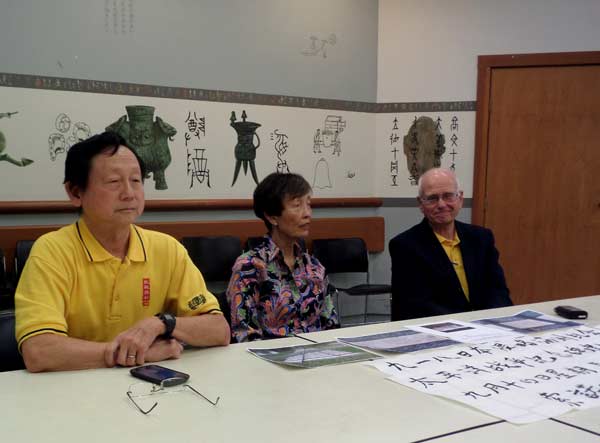 |
|
Ignatius, Jean Bee Chan, chair of the Rape of Nanking Redress Coalition and Peter Stanek, one of the active member of the Alliance, takes this picture at the anniversary commemoration of the Pacific War Memorial Bench at the Sonoma State University on Sept 14. Provided to China Daily |
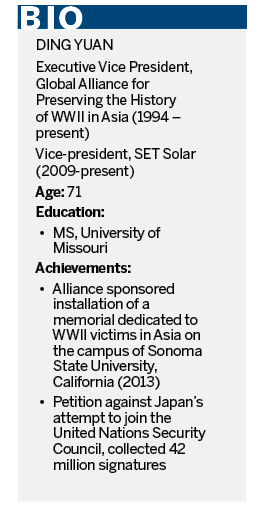
Ding Yuan became a convert in the early 1990s. He went from being a high-tech professional in Silicon Valley to a persistent and indomitable fighter for preserving the historical truth of World War II. His mission is to illuminate the dark chapter from 1931 to 1945, when Japan invaded China and its army committed countless war crimes and atrocities against Chinese civilians, leaving tens of thousands dead and wounded and scarred for life.
Ding, 71, serves as executive vice-president of the Global Alliance for Preserving the History of WWII in Asia, a Cupertino-based human rights organization that was established in 1994.
For 20 years, the alliance has been advancing an agenda of seeking an apology and monetary compensation for victims and survivors and their families of the Japanese invasion of WWII, spreading historic truth in the West and conducting educational activities to inform and mobilize public opinion.
Ding said although they aim at promoting peace and reconciliation in the world, there will never be a foundation for reconciliation without honesty and candor on the part of Japan.
Peace will not come until Japan forthrightly acknowledges this history and apologizes and compensates its victims, otherwise peace between Japan and the Asian neighbors it traumatized during WWII will remain elusive.
"We can forgive," Ding said, "but we will never forget."
Currently, Ding is busy finalizing details for an alliance-sponsored biannual international conference on Nov 14 in San Francisco.
"I'm thrilled to see that so many interested individuals from China's mainland, Taiwan, Hong Kong, Japan and the other parts of the world have registered to attend," said Ding, noting that the changing international and domestic situations in recent years have intensified the complexity of several bilateral and multilateral relationships.
China and Japan have been suffering from diplomatic stagnation for years due to rising tensions over the sovereignty of Diaoyu Island after Japan and then Prime Minister Yoshihiko Noda unilaterally announced the "nationalization" of the island in 2012.
Japan's current Prime Minister, Shinzo Abe, escalated the dispute by supporting the claim and further irritated Beijing by allowing lawmakers from his Liberal Democratic Party to pay tribute at the notorious Yasukuni Shrine, which honors Japan's war dead, including 14 Class-A convicted WWII criminals. The shrine is seen as a symbol of Japan's past militarism.
In July, Japan's cabinet lifted the ban on its armed forces fighting overseas, based on a limited re-interpretation of its 70-year-old pacifist constitution, a move some experts described as dangerous.
Ding said the international community must stay vigilant as Japan's right-wing politicians have been playing with fire in recent years, putting the peaceful development of Asia at risk.
Ding hopes the alliance's conference will provide a platform through which the non-governmental organizations in both Japan and China can sit, listen and talk, and help the two nations communicate within a frame of rational dialogues, including Japan recognizing historic truths, apologizing to China and its neighbors for its wartime wrongdoings and rebuilding healthy international relationships.
Ding's lasting bond with the alliance started accidentally in 1992 when the organization was still in its embryonic stage and its founders were looking for a spokesperson. A veteran high-tech engineer at IBM and Hewlett-Packard, Ding recalled his knowledge of Chinese history - including the chapter on the Japanese invasion - at the time was a little rusty.
"I came to the US in 1968 to further my studies in physics and computer sciences," said Ding. He landed an engineering job after graduating from the University of Missouri and shuttled from one global high-tech company to the next. "Honestly, my grasp of Chinese history was weak at that time."
Ding went to libraries and archives on World War II and the Japanese invasion. He went to China and talked with survivors. He was overwhelmed by the tragic stories he heard.
"Almost each and every family I visited, no matter where I went to, had their own stories to tell," said Ding. "I felt it was my duty to let the world know what happened to China and its people, and understand why the Chinese are so furious over Japanese's denial of its wartime wrongdoings."
This year marks the 77th anniversary of the Marco Polo Bridge Incident, or the July 7 Incident, which was the prelude to the Chinese people's eight-year struggle against Japanese aggression.
Japan invaded northeast China in September of 1931, while historians took July 7, 1937 as the start of Sino-Japanese War. On that day, after long planning, the Japanese Imperial Army opened fire on Chinese soldiers stationed in Wanping Town, a crucial access southwest of Beijing, and launched a full-scale invasion of China.
According to 89 Japanese wartime documents made public on April 25 in Jilin province, invading Japanese troops committed shocking atrocities in China - they abducted and trafficked Chinese women and forced them into sex slavery at "comfort stations"; they occupied the city of Nanjing and killed more than 300,000 Chinese civilians, burned down a third of the houses in the city and raped more than 20,000 women, including teenagers; and they carried out bacterial experiments on people at Unit 731, the notorious top-secret biological and chemical warfare research base established in Harbin in 1935 that served as the nerve center for Japan's biological warfare campaign in China and Southeast Asia during WWII.
Those files, once kept by the invading Japanese army, represent only a small portion of the nearly 100,000 wartime files retrieved in the 1950s, according to Yin Huai, president of the Jilin Provincial Archives in Changchun.
Ding's alliance is pushing for the establishment of permanent public WWII memorials as part of their volunteer work. In recent years, memorials to Pacific War victims have been installed in New Jersey, New York and some cities in California.
Last September, the Alliance sponsored the installation of a memorial dedicated to WWII victims in Asia on the campus of Sonoma State University in California. The memorial features an 11-foot-long granite bench engraved in both English and Chinese to commemorate the victims and a footpath inscribed with memorial messages for victims - civilians and prisoners of war murdered in Japanese experiments in Unit 731, hundreds of thousands of women and young girls forced into sexual slavery, 35 million Asians and Pacific Islanders murdered in Japanese army atrocities and the 300,000 killed in the Rape of Nanking.
Ding said he and the alliance are now setting their sights on the younger generation to pass on the torch. The alliance has been working with several Chinese universities, including Peking University and Shanghai Normal University, to train future leaders in the cause of preserving historic wartime truth and seeking justice for the victims of WWII.
With the utmost resolution and effort, we will join with people all over the world to safeguard the victory in the Chinese People's War of Resistance against Japanese Aggression and the world war against fascism, Ding said.
junechang@chinadailyusa.com
Most Viewed
Editor's Picks
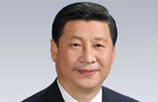
|

|

|
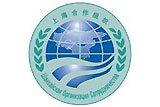
|
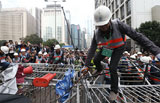
|
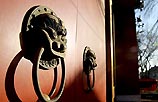
|
Today's Top News
China OKs modified corn imports
California city fights 'birth tourism'
Build, not break, a bridge for people
Chinese city shops for talent in Houston
Cleaner coal goal in deal by Houston firm
China, US get things done at trade talks
China niche for California design firm
NYC schools can mark Lunar New Year
US Weekly

|

|
